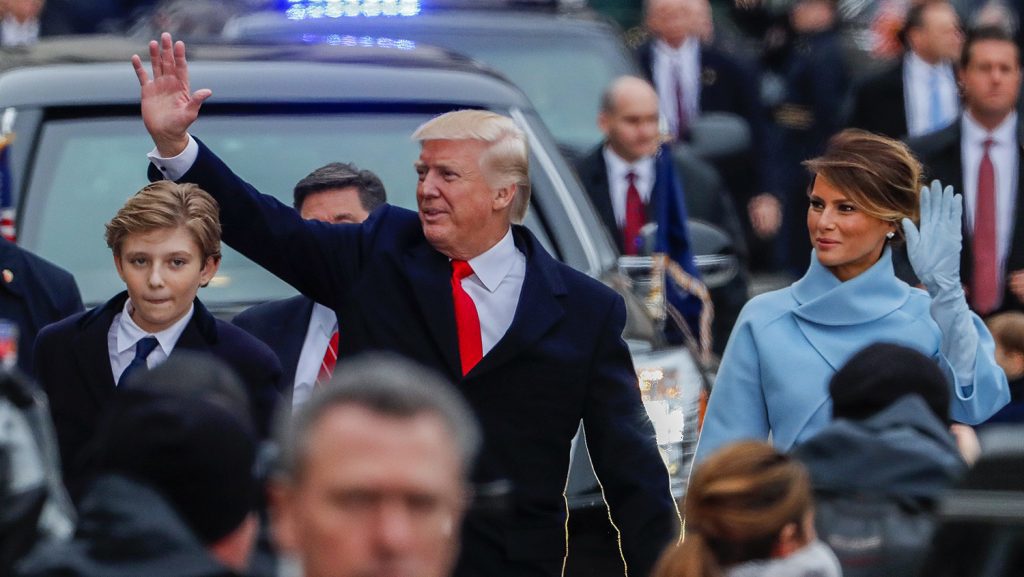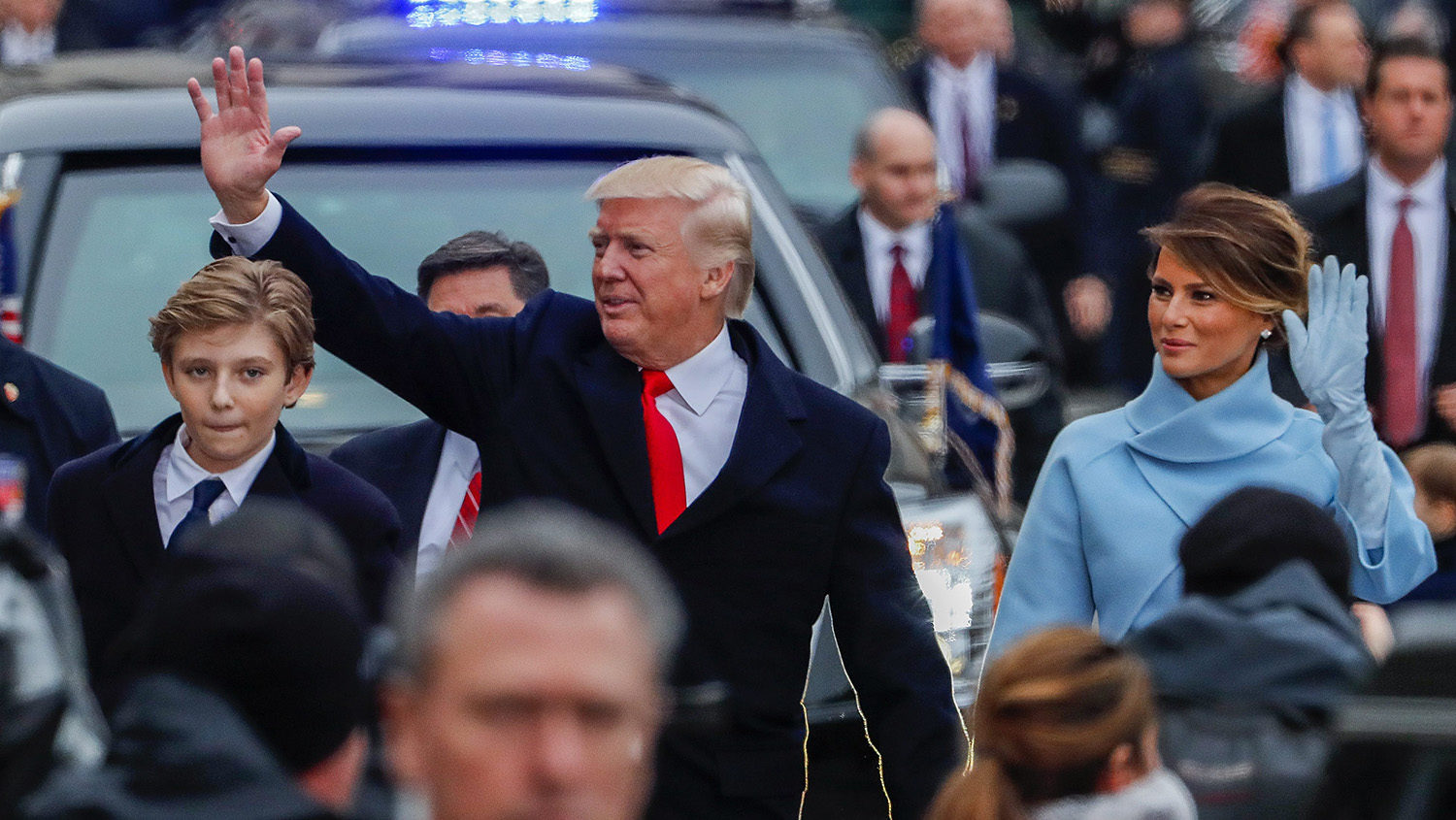
Comedians took to Twitter hours after the inauguration of U.S. President Donald Trump in Washington, D.C., to mock his 10-year-old son, Barron Trump. Stephen Spinola, a self-described “Comedy Central content contributor,” sent out several sexually-suggestive tweets about Trump’s youngest son, and received thousands of negative responses. Saturday Night Live writer Katie Rich also received intense backlash after she wrote a tweet calling Barron Trump the “country’s first homeschool shooter” (Barron Trump is not home-schooled, for what it’s worth). Rich was later suspended indefinitely from the NBC comedy show. They were among a handful of comedians who received backlash for tweeting about the boy.
I sincerely apologize for the insensitive tweet. I deeply regret my actions & offensive words. It was inexcusable & I'm so sorry.
— Katie Rich (@katiemaryrich) January 23, 2017
The tweets were, at best, the kind of third-rate attempts at “edginess” that pass for humour on Twitter. At worst, they were a cynical attempt to bully and belittle anyone who comes within a wide sphere of the U.S. president. As someone who appreciates the power of comedy to push the boundaries of what is considered acceptable, I scrolled past the tweets with a shrug. Offending people is one thing that comedians are supposed to do, is it not? They say absurd things, sometimes grotesque things, and behave in ways that are often considered socially unacceptable. They are clowns who have a special license to ridicule, who co-sign an unspoken contract that they try their best to “punch up” whenever possible. I rolled my eyes and moved onto more important news, namely the crucial international debate about how many people actually attended the inauguration on January 20.
But when I came across a tweet by National Post reporter and web producer Ashley Csanady mocking the U.S. president’s son, I was surprised (Csanady made fun of photos taken of the 10-year-old on Inauguration Day). I previously worked with Csanady as an intern at the Post last summer, and remember her being a helpful and welcoming person.
Csanady was flooded with messages ranging from polite disagreement to vicious attacks on her appearance, and threats. Roughly summarized, most of the criticism on Twitter was: “he’s a kid, so leave him alone!” Conservative politician Jason Kenney added to the Twitter fray at one point.
Delete your account. What kind of sickos mock a child?
— Jason Kenney 🇨🇦🇺🇦🇮🇱 (@jkenney) January 21, 2017
I can’t quite identify with the outrage at a billionaire’s son being mocked. Having said that, most people were offended not by the content of the tweet itself, but rather at how the Post reporter broke another apparently unspoken rule of political mudslinging: children are off-limits. Part of the backlash also stemmed from the argument that serious journalists should not be making political jokes like this. I was reminded of a section from the Reuters Handbook of Journalism, which contains detailed rules about how journalists should use social media.
“Our wish is for people to benefit safely from social networks, not to muzzle anyone. Journalists are people too, with all the rights of citizens,” the guidelines explain.
However, it adds that “when dealing with matters of public importance and actual or potential subjects of coverage…Reuters journalists should be mindful of the impact their publicly expressed opinions can have on their work and on Reuters.”
I recall that the National Post has a similar policy with respect to behaviour online, and that the Barron Trump jokes could push the boundaries of those standards. In any case, it is clear that there are higher professional expectations placed on a journalist than there are a comedian, even though the public backlash is similar.
Csanady declined to be interviewed, but she did send a written statement to the RRJ about the incident:
“I think both what makes Twitter great and makes it terrible is that it’s instantaneous. It’s a place for breaking news but also for quick one-liners. But the speed of the medium also encourages mistakes, both factual and with regards to taste. What I tweeted about Barron Trump was inappropriate for such a public forum. When I taught digital journalism at Ryerson last term, I cautioned my students against being too glib on Twitter. I think I learned that lesson once again myself — though I will add that even poor taste jokes don’t warrant the kind of violent language and threats I received for weeks afterward. That kind of harassment is also too common to Twitter and needs to stop.”
Her statement illustrates the utter imbalance and unfairness of a social media mob. Yes, the joke was an error in taste. It could even have committed the more serious error of being unfunny. But the reaction to the joke was completely disproportionate to those flaws. How is it fair that a barely off-colour joke should be met with such a widespread and vicious response? I am ashamed that I didn’t publicly support Ashley Csanady, as a fellow journalist who may disagree with her but who nonetheless is disgusted by the lopsided backlash.
https://twitter.com/AshleyCsanady/status/822917833856270337
In hindsight, the whole Barron Trump tweet debacle may seem trivial, but as someone who has made gaffes in the past, I would hope that I would be spared the nasty reprisals and threats this journalist faced over a joke. And so should anyone who relies on freedom of expression in order to make a living. Who did the tweet hurt? Csanady was not throwing bricks or assaulting police because she hated Barron Trump. She was not punching someone whose ideas she regarded as a cancer on society. She was being snarky.
I understand that not engaging in physical violence is a low bar for acceptability, but after hearing fellow j-school colleagues tell me with straight faces last week that it is justifiable to physically assault someone whose ideas one considers dangerous, I’m not sure it’s actually a low bar at all. Nor is it a laughing matter.
